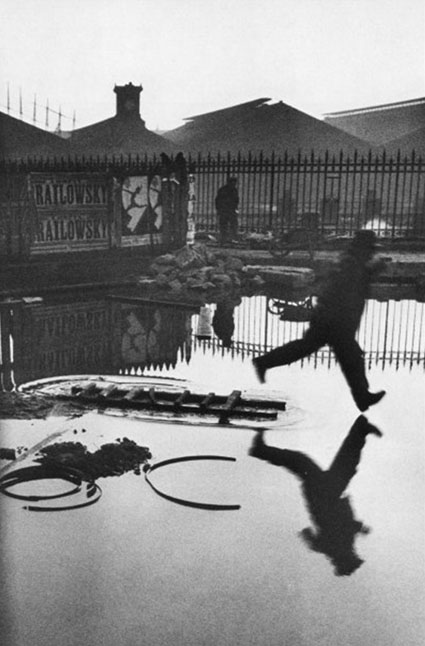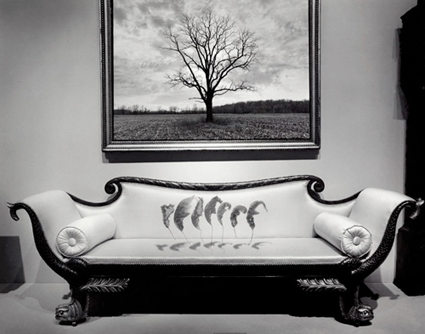29 Quotes By Photographer Henri Cartier Bresson
Here’s a selection of my favorite quotes by photographer Henri Cartier Bresson.
“It is an illusion that photos are made with the camera… they are made with the eye, heart and head.” – Henri Cartier-Bresson
“To photograph: it is to put on the same line of sight the head, the eye and the heart.” ― Henri Cartier-Bresson
“Your first 10,000 photographs are your worst.” ― Henri Cartier-Bresson
“A photograph is neither taken or seized by force. It offers itself up. It is the photo that takes you. One must not take photos.” – Henri Cartier-Bresson
“Of all the means of expression, photography is the only one that fixes a precise moment in time.” – Henri Cartier-Bresson
“The picture is good or not from the moment it was caught in the camera.” – Henri Cartier-Bresson
“The creative act lasts but a brief moment, a lightning instant of give-and-take, just long enough for you to level the camera and to trap the fleeting prey in your little box.” – Henri Cartier-Bresson
“To me, photography is the simultaneous recognition, in a fraction of a second, of the significance of an event.” – Henri Cartier-Bresson
“Photography is, for me, a spontaneous impulse coming from an ever attentive eye which captures the moment and its eternity.” – Henri Cartier-Bresson
“Your eye must see a composition or an expression that life itself offers you, and you must know with intuition when to click the camera.”
“For me, the camera is a sketch book, an instrument of intuition and spontaneity.” ― Henri Cartier-Bresson
“Above all, I craved to seize the whole essence, in the confines of one single photograph, of some situation that was in the process of unrolling itself before my eyes.” – Henri Cartier-Bresson
“Memory is very important, the memory of each photo taken, flowing at the same speed as the event. During the work, you have to be sure that you haven’t left any holes, that you’ve captured everything, because afterwards it will be too late.” – Henri Cartier-Bresson
“Photographers deal in things which are continually vanishing and when they have vanished there is no contrivance on earth which can make them come back again.” – Henri Cartier-Bresson
“This recognition, in real life, of a rhythm of surfaces, lines, and values is for me the essence of photography; composition should be a constant of preoccupation, being a simultaneous coalition – an organic coordination of visual elements.” – Henri Cartier-Bresson
“Reality offers us such wealth that we must cut some of it out on the spot, simplify. The question is, do we always cut out what we should?” - Henri Cartier-Bresson
“While we’re working, we must be conscious of what we’re doing.” – Henri Cartier-Bresson
“We must avoid however, snapping away, shooting quickly and without thought, overloading ourselves with unnecessary images that clutter our memory and diminish the clarity of the whole.” – Henri Cartier-Bresson
“A photographer must always work with the greatest respect for his subject and in terms of his own point of view.” – Henri Cartier-Bresson
“In photography, the smallest thing can be a great subject. The little, human detail can become a Leitmotiv.” – Henri Cartier-Bresson
“The most difficult thing for me is a portrait. You have to try and put your camera between the skin of a person and his shirt.” – Henri Cartier-Bresson
“As time passes by and you look at portraits, the people come back to you like a silent echo. A photograph is a vestige of a face, a face in transit. Photography has something to do with death. It’s a trace.” – Henri Cartier-Bresson
“As far as I am concerned, taking photographs is a means of understanding which cannot be separated from other means of visual expression. It is a way of shouting, of freeing oneself, not of proving or asserting one’s own originality. It is a way of life.” – Henri Cartier-Bresson
“Thinking should be done before and after, not during photographing.”- Henri Cartier-Bresson
“Photography is an immediate reaction, drawing is a meditation.” – Henri Cartier-Bresson
“The intensive use of photographs by mass media lays ever fresh responsibilities upon the photographer. We have to acknowledge the existence of a chasm between the economic needs of our consumer society and the requirements of those who bear witness to this epoch. This affects us all, particularly the younger generations of photographers. We must take greater care than ever not to allow ourselves to be separated from the real world and from humanity.” – Henri Cartier-Bresson
“I believe that, through the act of living, the discovery of oneself is made concurrently with the discovery of the world around us.” – Henri Cartier-Bresson
“You just have to live and life will give you pictures.” – Henri Cartier-Bresson
“Of course it’s all luck.” – Henri Cartier-Bresson
Read more photographer’s quotes here.
View photographer’s favorite quotes here.



